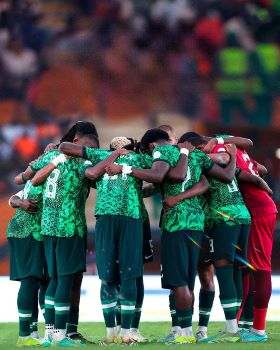The Super Eagles conundrum: Unpacking the best coaching option for Nigeria's national team
Published: April 28, 2024
As the Super Eagles gear up for another exciting chapter in their football journey, the debate rages on: should the team be led by a homegrown coach or a foreign tactician?
This question has sparked intense discussion among football enthusiasts, pundits, and fans alike, with each side presenting compelling arguments. I
n this article, allnigeriasoccer.com delves into the heart of the matter, examining the pros and cons of both options to uncover the most favourable choice for Nigeria's beloved national team.
On one hand, the argument for a home-based coach is rooted in the importance of local knowledge and understanding.
A Nigerian coach, having risen through the ranks of the country's football system, would possess an intimate grasp of the team's dynamics, cultural nuances, and player personalities.
This familiarity would enable them to tailor their approach to suit the unique needs of the Super Eagles, fostering a sense of national pride and ownership.
Moreover, a homegrown coach would be better equipped to navigate the complexities of Nigerian football politics, ensuring a smoother transition and more effective communication with players, officials, and fans.
The likes of Stephen Keshi and Samson Siasia have demonstrated the potential of local coaches, leading the team to success in the past.
On the other hand, the case for a foreign coach rests on their ability to bring fresh perspectives, modern tactics, and a wealth of international experience.
A coach from abroad would introduce new ideas, challenging the team to adapt and evolve, potentially unlocking new levels of success.
The likes of Jo Bonfrere and Clemens Westerhof have shown that foreign coaches can achieve great things with the Super Eagles.
Furthermore, a foreign coach would likely command respect from players, officials, and opponents alike, thanks to their reputation and achievements in the global football community.
This authority would enable them to make tough decisions and implement their vision without interference, allowing the team to flourish under their guidance.
However, it's crucial to acknowledge the potential drawbacks of each option. A home-based coach might struggle to impose their authority and make tough decisions, given their proximity to the players and the Nigerian football hierarchy.
Conversely, a foreign coach might require time to adjust to the team's dynamics and local football culture, potentially leading to a slow start or misunderstandings.
So, what's the best option for the Super Eagles? The answer lies in striking a balance between the two. A hybrid approach, where a foreign coach works in tandem with a local assistant, could prove the most effective solution.
This partnership would combine the benefits of international expertise with the intimate knowledge and understanding of a homegrown coach.
Ultimately, the choice of coach depends on the Nigeria Football Federation's vision and priorities.
If they seek a quick fix and short-term success, a foreign coach might be the way to go.
However, if they're willing to invest in long-term development and nurturing local talent, a home-based coach could be the better option.
Ejim Kaycee
Copyright ANS
All rights reserved. This material, and other digital content on this website, may not be reproduced, published, rewritten or redistributed in whole or in part without prior express written permission from allnigeriasoccer.com
- 14-time Polish champions Gornik Zabrze sign teenage winger Abdullahi from Sporting Supreme
- Bayer Leverkusen's N81.2b-rated striker Boniface on the radar of Saudi, English clubs
- Panathinaikos latest club interested in signing out-of-favour Sevilla striker Iheanacho
- The safety and security of 1Win for African gamblers
- 'I am close to Gusau, Ikpeba, Lawal, Eguavoen' - Okocha sets record straight on NFF Board's removal
- Olympiakos in advanced talks to sign Super Eagles left-back Onyemaechi after N4.1b offer
- 'I know Eric Chelle' - Rohr warns Super Eagles coach he faces uphill battle to lead Nigeria to World Cup
- Exploring Slot Demo Le Bandit: A comprehensive guide
- No going back: Nigerian defender agrees move to Brentford subject to medical
- Leganes pushing to sign Dessers on loan but Rangers demands pose a major hurdle
 Football News 24/7
Football News 24/7

- Football Betting
- African Players
- Australia/ Asia
- Belgian Championship
- Bundesliga
- Danish Football
- English Premier League
- Nigeria National Teams
- Casinos not on Gamstop
- Nigeria Premier League
- Norwegian Football
- Polish Football
- Russian Championship
- Serie A
- Spanish Liga
- Swedish Championship
- Transfer
- Turkish Championship
- 1Win
- Ukrainian Football
- Uncategorized
- Women's Football

